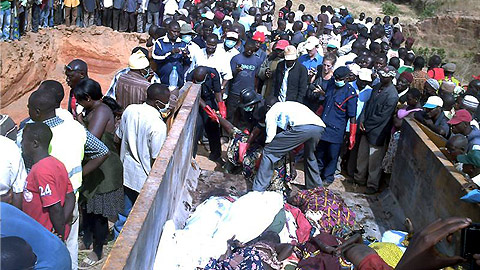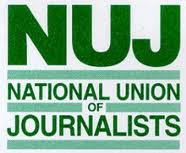It is so easy to wave away thorny issues like political and religious motivated conflicts in far flung parts of the world. We hear about Afghan and Iraqis been killed every day, but take little or no notice, except in a remote case of the involvement of a friend or relative. We hear about suicide bombers in Pakistan killing countless number of innocent poor people everyday – It is easy to dismiss all for our general lack of facts that allows us to see first-hand or feel what the other party feels.
Early this year, sequel to the unsuccessful mission of Mutalab aka “diaper bomber” on 25th December 2009, Nigeria was classified as a terrorist nation and all (including me) cried foul! We all wondered how millions of peaceful Nigerians could be so labeled, because of the actions of a single deranged man. But alas, today we know for certain that militancy is in our midst. We now hear about car bombs at public places on special occasions – we hear about endless religious conflicts between cult-like renegades who mask their deeds in the name of God. We hear about freedom fighters armed by politicians whose only objective is to promote an atmosphere of fear that allows them to continue to plunder that which belongs to the masses. While many may say this is all a new phenomenon that reflects the yearning for freedom, justice and equality. What we have not stopped to consider is its antecedence – our history.
Mans Wicked Heart
In a heated debate over the story of creation and evolution with my friend Otuije Otuije, I reminded him about 16th century, when Christian Europe, in the name of God had slaughtered thousands of Muslim children, men and women – We called that holocaust “the Crusades”. Mans wickedness to man is chronicled in the annals of history – from the crusades, to the holocaust, to the Jihads, etc.
Coming closer to home, barely four years after colonial Britain pulled out, Nigeria has been plagued on all fronts, since our trigger-happy war lords, like their tribalised forbears laid their bloodied hands on the mantle of leadership (leading to a civil war in 1967) we have not known peace. Then, like now, countless numbers of people in the west and north of Nigeria carried on, like nothing was wrong. To most, the turmoil and suffering of innocent children, men, and women in Eastern Nigeria (their erstwhile fellow Nigerians) were too far off to be felt. To others, Biafrans (innocent of not) deserved it for the audacity exhibited by their leaders. Due to self preservation, I am not surprised at their selfishness and folly, I can not argue justly who is right and who is not, However what baffles me is how all this go on under our very noses, like they say "in our own backyards" and yet nobody wants to talk about it. That is why I wrote this article.
The More You Look – The Less You See
In 1988, as a youth in Port Harcourt, I watched the most horrible video of my life . The videos was shot from a helicopter, and showed soldiers shooting villagers in a market place… Sounds familiar? Sounds like any Vietnam war movie? Well, No! This was Nigeria, Rivers State, Ogoni Land, Nigerian Soldiers and the Helicopters belonged to Oil giant – Shell.
This was before Ken Saro’wiwa was killed and the MOSOP (see factsheet on ogoni & shell). The VHS tape was smuggled into town by sympathetic foreigners and was very instrumental to the international declaration that gave every Ogoni the leeway to seek asylum in Europe and America. I was stunned to see how far a company would go to protect its investment and even more so, to see how a nation, lead by blind men could help to ensure same.
'The flames of Shell are flames of Hell,We havent learnt the lessons, this same act was to happen again in 1999. Thanks to Timaya a notable artiste from the deep south, most Nigerians would never know that entire villages were wiped out in the south to ensure the steady flow of crude oil.
We bask below their light,
Nought for us to serve the blight,
Of cursed neglect and cursed Shell" - an Ogoni Song
“They don kill them mama, dem papa, I say they don kill dem mama, dem papa… everyday for Nigeria na so my people dey die…“two decades on, and the story is still the same. The captions on recent papers – all paint the same eerie picture that suggests that this is still been practiced today in 2010. Captions like:-
- 17 Movement of the Actualization of the Sovereignty of the State of Biafra (MASSOB) members arrested for hoisting the Biafran Flag in Abia State.
- "General" John Togo, The New Face Of The Niger Delta Insurgency, Speaks
- Multiple Bomb blasts on Christmas day
- Oron Communal Clash
- President of Human Rights Peace Justice Foundation gunned down
- Jos Crisis – Allegations of bias not fair on soldiers
- Bombs hit Political Rally in Yenegoa
- Boko Haram Kills 3 in Fresh Maiduguri Attacks
- Jonathan urges military task force in Abia, Akwa Ibom to wipe out kidnapping

Though the interview clearly portrays John Togo as an uninformed, misguided renegade of MEND, through all, what stands out clearly for those who have ears to hear, is that the delta – the goose that lays the golden egg, is dying, her innocent children, men and women are been slaughtered by the Joint Task Force headed by the Nigerian Army on a regular basis. The commentary on Sahara Reporters all seem to be focused on the persona of the actant and not on the idea behind their rebellion. What will it take for the Nigerian state to listen and act justly for cries of Isaac Adaka Boro, Ken Saro-wiwa, ... and I dare to add... John Togo. Something seems to be missing, why cant the rest of us see the sorry situation in the south? Why will people not consider the reasons that lay beneath this gory picture? Robert Nestor made popular this saying "He who feels it, knows it." Do I feel it cos I saw those images of beefy Nigerian soilders shooting innocent children in a village market? Do I feel it cos I know what that living next to a gas flaring site is the next thing to being in hell? Do I feel it cos I know that paddling a canoe is no mean feat for a grown man, how much less for a woman who has to go several miles away from her fising ground to fish due to water pollution and activities of the oil companies? Do I know this because I am from the Niger Delta and have first hand knowledge of what my people go through? To my mind, the readers have been 'lead on' to think the way they do. Mostly due to the fault of the media who often sell a one sided story.
While I applaud Sahara Reporters for the interview, it would have been better to get footage (if only still pictures) to better inform the rest of Nigeria and the world at large. Footage of the Christmas Day Bombs in Jos clearly shows how unresolved political or religious crisis can lead to wanton destruction of lives and property. Does the audaciousness exhibited by these few justify the killing of innocent women and children? Does the few seats in the local Jos council justify the killing of hundreds of people? I think not, We have to go back to history to learn how to right these wrongs. When the Crusaders captured Jerusalem, little did they know that only 200 years later Saladin would take it back, little did they know that a few hundred years on, Bin Laden would take the fight further. While Shell BP (British Petroleum) and the Crown covertly armed Nigeria against Biafra and watched millions of innocent children, men and women killed. In their quest to keep the oil flowing, they continue to prod the Nigerian government in her fatal dance with the love of oil to rub and kill the innocent. History will tell, one bright shinning morning, when the tables will turn. 3 decades after the Nigerian Civil War, the hatred of the minorities still persits - or what other reason will make a Northern dominated army open fire on innocent villagers. Thousands of years on, Christians and Muslims are still fight to make Jerusalem - or why else will someone decide to detonate a bomb on Christmas day.
 Concerning the Jos crisis, Okey Duke Paulinus (the friend of a friend) wrote:-
Concerning the Jos crisis, Okey Duke Paulinus (the friend of a friend) wrote:-Cried as i watched... I had in d past did a study on what could be in d mind of those who kill fellow human being in d name of God..In d course of d research i found that weird belief smeared with masked view of God' personality would a...always influence one to feel elated, happy and even rejoice as he/she massacre fellow sibling, mother, friend kids etc. Sometimes when a thief kills he may feel remorseful but when a religious bigot kills he would feel most fulfil and thankful to his perceived God... Hope the right interpretation of God and His personality would b communicated to those who kill in God' name..If not ... May the souls of the believers who lost their lives in Jos mayhem rest in peace."So while you eat your jollof rice this season, while you are mesmerized by the twinkle of your 8 foot tall Christmas tree, while you sit under the pale blue sky awaiting the new year, give a thought to your neighbor and ask yourself how well he is.




















